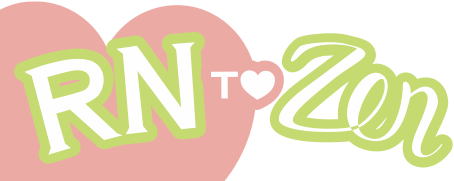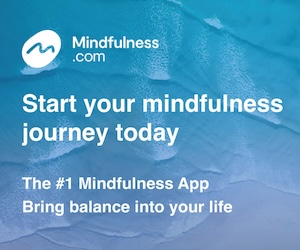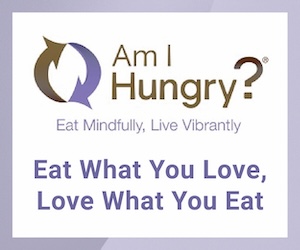Conscious Eating: Mindfulness in Mealtime Choices:
“Conscious eating” goes beyond simply choosing foods that are good for your brain; it’s about being present with your food and making intentional choices that benefit both your mind and body. This approach to eating encourages a deeper understanding of the nutrition your food provides and its impact on mental clarity and cognitive function. By practicing conscious eating, you create a mindful relationship with food, which leads to better choices and, subsequently, a healthier brain.
Related Article: Combatting Hunger: Meditation for Food Cravings Mastery

The Conscious Eating Connection to Brain Foods:
Incorporating the principles of conscious eating when selecting foods that are good for your brain can lead to more thoughtful dietary patterns that positively influence brain health. For instance, when you reach for that piece of dark chocolate, consider its source of flavonoids and the way it can help with focus and memory. Conscious eating encourages you to savor each bite and appreciate the food’s benefits, creating a fulfilling and nourishing dining experience.
How Conscious Eating Enhances the Benefits of Brain Foods:
Conscious eating amplifies the positive effects of foods that are good for your brain by encouraging slower, more deliberate consumption. This can aid digestion and absorption of key nutrients. When you eat with awareness, you’re more likely to notice the signals your body sends about hunger and fullness, which can prevent overeating and stress on the brain. Ultimately, conscious eating helps to ensure that the brain-boosting nutrients you’re consuming are used to their fullest potential.
Building a Conscious Eating Habit:
Developing a habit of conscious eating doesn’t happen overnight. Start by choosing one meal a day to eat mindfully, free from distractions like television or smartphones. As you eat, focus on the textures and flavors of foods that are good for your brain, such as crunchy nuts or creamy avocado. This practice will help you build a stronger connection to your food and the way it nourishes your body and mind.
The Role of Conscious Eating in Stress Reduction:
Stress can have a negative impact on brain health, but conscious eating can be a powerful tool for managing stress levels. By being present with your meals and choosing foods that are good for your brain, you can turn mealtime into a relaxing ritual that calms the mind and reduces the harmful effects of stress on the brain.
Conscious Eating Throughout the Day:
To truly embrace conscious eating, it’s important to apply its principles to all meals and snacks throughout the day. Start with a breakfast that includes brain-boosting foods like eggs and berries, and take the time to enjoy each bite. For lunch and dinner, compose plates with a variety of colorful, nutrient-dense foods, and remember to eat slowly and with gratitude, acknowledging the role that these foods that are good for your brain play in your cognitive health.
The Future of Eating for Cognitive Health:
As we learn more about the connection between diet and brain function, the concept of conscious eating becomes increasingly important. Embracing this practice not only supports your own cognitive health but also contributes to a broader shift towards more mindful eating habits society-wide. By choosing foods that are good for your brain and eating them consciously, you’re taking a step towards a future where everyone is more aware of the food they eat and the impact it has on their bodies and minds.
Steps to Practice Conscious Eating:
- Start by eliminating distractions during meals.
- Take smaller bites and chew thoroughly.
- Before eating, take a moment to appreciate the appearance and aroma of your meal.
- Think about the nutritional value of each dish as you consume it.
Benefits of Conscious Eating:
- Improved digestion through slower eating and better chewing.
- Enhanced enjoyment and savoring of the flavors in foods that are good for your brain.
- Greater awareness of hunger and fullness cues, which can prevent overeating.
- Deeper appreciation for the quality of the food you consume and its sources.
Conscious Eating Daily Checklist:
- ☐ Chose a quiet, distraction-free setting for meals.
- ☐ Focused on the taste and texture of each bite.
- ☐ Listened to my body’s hunger and fullness signals.
- ☐ Selected foods that are good for your brain for at least one meal.
Table: Conscious Eating Food Choices and Their Benefits
| Food Type | Benefits | Conscious Eating Practice |
|---|---|---|
| Fatty Fish | Omega-3s for brain cell health | Savor the rich taste, consider the ocean’s health |
| Berries | Antioxidants for anti-inflammation | Notice the natural sweetness, think about the farming practices |
| Nuts & Seeds | Vitamin E for cognitive longevity | Feel the crunch, reflect on the energy they provide |
| Leafy Greens | Various vitamins for overall brain function | Chew thoroughly, contemplate the vibrant colors |
Embracing the ‘Am I Hungry?’ Program in Conscious Eating:
- Reflect on Physical Hunger: Before reaching for that snack of walnuts or blueberries, ask yourself if you’re truly hungry. The “Am I Hungry?” program encourages this reflection, which is a cornerstone of conscious eating.
- Understanding Emotional Eating: Recognize if the desire to eat is emotional rather than physical—a key teaching of the “Am I Hungry?” program. This understanding can help you choose foods that are good for your brain for the right reasons.
‘Am I Hungry?’ Program’s Approach to Brain Foods:
- Mindful Selection: When applying the “Am I Hungry?” program to your diet, it involves choosing foods that are good for your brain with intention, not just because they’re available or habitual.
- Satisfying Your Body’s Needs: The program helps to identify what your body is asking for, whether it’s the omega-3s in fish for brain health or the antioxidants in berries for inflammation.
Table: Integrating ‘Am I Hungry?’ Program with Conscious Eating Choices
| ‘Am I Hungry?’ Cue | Conscious Eating Decision | Brain Food Benefit |
|---|---|---|
| Physical Hunger | Choosing a nutritious meal | Fatty fish to supply omega-3s |
| Emotional Hunger | Acknowledging feelings without food | Preventing stress-eating, which can fog the brain |
| Taste Hunger | Savoring flavors of healthful foods | Enjoying the natural sweetness of berries for antioxidants |
| Practical Hunger | Planning meals with intention | Preparing leafy greens for their vitamin content |
Related Article: Am I Hungry? Program Review: A Transformative Approach to Mindful Eating
Practical Tips for Combining ‘Am I Hungry?’ and Conscious Eating:
- Plan Your Meals: Think ahead and plan meals that include foods that are good for your brain. This aligns with the “Am I Hungry?” program by making conscious decisions about what to eat before you’re extremely hungry.
- Eat Without Distraction: Turn off the TV and put away your phone. Eating without distractions is a principle of both conscious eating and the “Am I Hungry?” program.
- Savor Each Bite: Take time to chew and enjoy each bite, which can lead to better digestion and greater satisfaction with foods that are good for your brain.
Final Thoughts: Harmony Between Hunger and Health:
As we close the chapter on conscious eating and its integration with the “Am I Hungry?” program, it’s clear that the journey to mental clarity and optimal brain function is as much about our relationship with food as it is about the foods that are good for your brain themselves.
By listening to our bodies and choosing to nourish them mindfully, we not only enhance our cognitive abilities but also embrace a lifestyle of intentional wellness. Let this be a gentle invitation to reflect on your eating habits, to pause at your next meal, and to ask the simple yet profound question: “Am I hungry?” – and let that guide you to choices that feed both body and soul.




